Functional Ingredients
Harrison’s Bird Foods (HBD) has been a pioneer in avian nutrition for over 40 years. Unfortunately, most peer-reviewed scientific literature encompassing bird nutrition is not based on pet birds, but rather on poultry and waterfowl.
HBD has over 40 years of empirical data showing our formulas produce positive results in all captive species when fed correctly.
Traditional Bird Food Ingredients
Removes seed coat, using steam, high pressure, or solvents to separate high-value components, such as oils, vitamins, antioxidants, and nutraceuticals. What is left is classified as a byproduct. Corn used for ethanol, various fibers and simple carbohydrates are reconstituted in various feeds. These starches are further bleached, colored and offer the ideal base for extrusion caramelization, giving a light fluffy finished product. The resulting flours act like purified sugars, digest fast and overwhelm the homeostasis of the nutrient system.
Harrison’s Bird Food Ingredients
HBD Uses Only Certified Organic, Non-GMO Verified Whole Ingredients.
Whole grains maintain their antioxidants, primarily in their seed coat and germ. These phytonutrients are primarily phenols that work with the body’s immune system to ward off disease. HBD’s product flours will not expand during extrusion, because of these retained properties.
We Toast First, Then Use a Low-pressure, Low-temperature Extrusion Process
To stabilize natural enzymes, we toast grains and legumes in an infrared oven. This allows the items to be treated as individual ingredients and keeps many of the fragile nutrients stabilized in the end product.
Toasting allows low-temperature extrusion. Extrusion is a “cooking” process that resembles baking; it sterilizes the product, prolongs the storage time, and increases digestibility. The toasting and low-temperature extrusion release the natural nutty, sweet flavors, and preserve vitamins that may be temperature-sensitive.
We Excel at Quality Control
Each batch of our ingredients is tested and certified free of mycotoxins, GMO’s (genetically modified organisms), melamine, and bacterial contaminants.
Ingredients We Use and Why
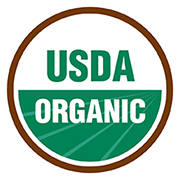
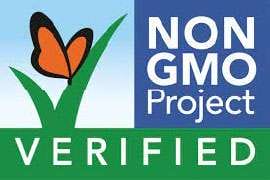
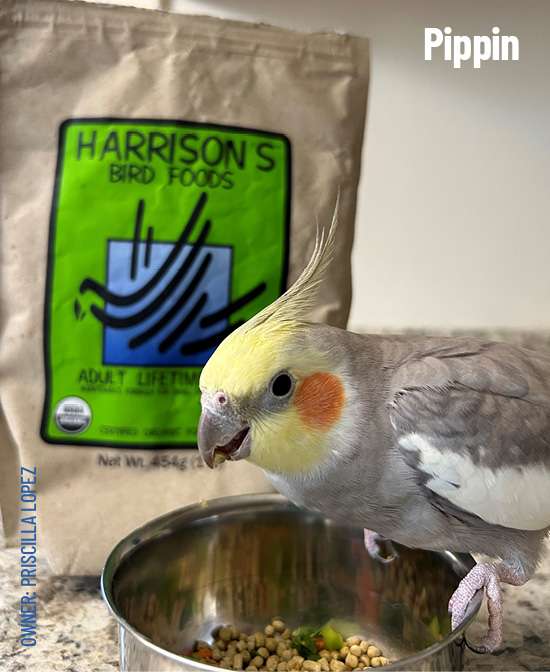
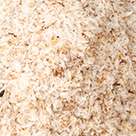
Organic Psyllium
Psyllium is used to increase the absorption of electrolytes and minerals. Because it is bulk fiber, it also serves to remove viruses, bacteria, metals, etc. from the GI tract. The presence of psyllium decreases the GI transit time, thereby reducing the number of feedings, and at the same time improves the digestion of ingredients. The gel is digested by bacterial fermentation, reducing blood ammonia and thus the workload of the liver. The digested ammonia creates lactic acid, decreasing the intestinal Ph, which is inhibitory to gram-negative bacteria, not normal in the psittacine biome, enhancing the production of autochthonous (normal) flora. The gel is also a healing bandage for inflamed intestines.
Psyllium is an ingredient in Harrison’s Adult Lifetime Coarse, High Potency Coarse and Juvenile formulas.

Organic Kelp
Harrison’s kelp is a natural and organic source of chelated minerals, especially iodine, with more than 12 vitamins and 21 amino acids. It is harvested in the cold, dark and nutrient-rich waters of the North Atlantic, dried at low heat to preserve the nutrients and ground fresh.

Organic Yellow Corn
Ground yellow corn has excellent phytonutrients, and is an excellent source of carbohydrates for energy. It is lower in gluten than wheat, high in fiber, and essential fatty acids, low in protein, rich in beta-cryptoxanthin, phosphorus, magnesium, manganese, zinc, copper, iron and selenium. Contains vitamin B, Thiamin (brain), Vitamin B6, Niacin, Riboflavin, and is very high in Folate (prevents homocysteine) and Pantothenic acid (adrenal glands support).
Adult Lifetime Maintenance Mash contains no corn. This special mix was initially developed for exotic finches but has turned out to be an excellent formula for the conversion of cockatiels and budgies. The formula is beneficial for some bird species that are sensitive to corn.

Organic Soybeans
High in soluble fiber, anti-inflammatory in nature, anti-cancer properties. Stoodley’s breeding results proved the rumors (20 years later) about soy in birds were incorrect. Klasing studies show phytoestrogens in soy are not harmful to birds.
Harrison’s rolled and toasted soybeans retain their anti-angiogenic properties.
Soybeans are among the best sources of plant-based protein. Soybeans are a good source of several vitamins and minerals, including vitamin K1, folate, copper, manganese, phosphorus, and thiamine.
Raw soybeans contain anti-nutritional compounds, including phytic acid and antitrypsins. These, with other soy chemicals, interfere with protein utilization. Heat-treating soybeans deactivates these compounds. Feeding raw soybeans, including sprouted beans, may cause a calcium, zinc, magnesium, and iron deficiency. These minerals are essential to bird health – especially for laying birds and developing chicks. Extrusion (cooking) inactivates anti-nutritional compounds. *C.R. Dick Grau U of CA July 10, 1992
Balancing Nutritional Benefits and Myths PDF Download

Organic Whole Peanuts
Rare in pet foods due to high cost. High in plant sterols, lowers LDL, high in CA, Mg, K, and in the proper ratio, high in niacin, stabilizes blood glucose. High in essential amino acid arginine, high in monounsaturated fatty acids, decreases atherosclerosis, high in energy from fats, and low carotene. Initial introduction into avian health studies in the Stoodley diet study. All our foods are tested for toxins.

Organic Spirulina
Spirulina algae is one of the special ingredients included in HBD formulas. This component supplies natural beta carotenes, xanthophyll and other vitamin precursors that are eaten by birds in the wild.
Harrison’s Bird Foods uses only spirulina which is certified free of heavy metals and mycotoxins. Early investigations into securing a source for this product revealed that much of the spirulina available on the market (especially cheaper products) is contaminated with both toxins.
Free-ranging birds do not eat vitamin A and vitamin K which are found in synthetic nutritional supplements; rather, they manufacture their own from vitamin precursors found in natural foods. Several studies have shown the beneficial effects of these pigments on immune stimulation and the healing of disorders relating to the pancreas, liver, colon, and respiratory system. Spirulina is an excellent source of high-quality protein and B vitamins, especially riboflavin.
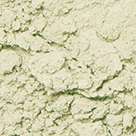
Bentonite
One of the primary benefits of bentonite clay (we specifically use montmorillonite clay), is a superior ability to absorb toxins and counteract dietary toxins by binding toxic chemicals and bacteria and helping eliminate them from the body.

Organic Sunflower Kernels
Are packed with fat and protein, and also contain vitamins such as the essential B vitamins, and higher levels of trace minerals such as copper, manganese, and zinc compared to many other seeds.

Organic Hull-less Barley
Provides a range of vitamins and minerals such as selenium, B vitamins, copper, chromium, phosphorus, magnesium, and niacin to name a few. Compared to other grains, barley is lower in fat and calories, but higher in fiber and certain trace minerals.

Organic Peas
Contains vitamins A, B, C, and K and minerals like iron and calcium. They are low in fat and cholesterol and provide high quality protein.

Organic Lentils
Provide carbohydrates and protein, iron, magnesium, B6, and folates. They are also a good source of dietary fiber.
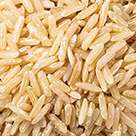
Organic Brown Rice
Contains calcium, iron, magnesium, phosphorus, zinc, copper, manganese, selenium, Vitamin B6, folate, Vit B3, Vit B2, and Vit K. The bran layer of brown rice contains flavonoids like apigenin and quercetin, and are rich in antioxidants called phenolics.

Organic Toasted Oat Groats
Are rich in many vitamins and minerals, such as manganese, phosphorus, copper, B vitamins, iron, selenium, magnesium, and zinc. A source of powerful antioxidants, called avenanthramides. They also contain ferulic acid and phytic acid.
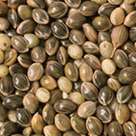
Organic Grey Millet
High in fiber and packed with vitamins and minerals. It’s a great source of copper, manganese, phosphorus and magnesium.

Organic Chia
Rich in omega-3 fatty acids, soluble fiber, protein, vitamins, and minerals.
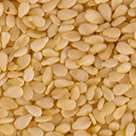
Organic Sesame Seeds
A good source of protein and essential fatty acids, sesame seeds are also rich in antioxidants and phytochemicals, and are a natural source of B vitamins and vitamin E, as well as minerals such as calcium, iron, and magnesium.

Organic Salt
Salt is an essential mineral required by birds, as it is by all living animals. A shortage of salt can cause excessive fluid excretion (polyuria), weight loss, fatigue, and slow growth. Humans eat foods that naturally contain salt (meats, eggs, dairy, and seafood) but some animals, such as parrots, can have diets lacking in essential minerals. In the wild, they search for supplemental salt sources, like the parrots of Manu and Tambopata, where parrots use clay licks to ingest different salts and to help detox their bodies from the fruits, seeds, and nuts they have eaten in the forest.
While salt only makes up a small part of the body weight, it does play a crucial role in maintaining health, nerve, and muscle functions and in regulating body fluids, and is necessary for the overall health of your bird.
